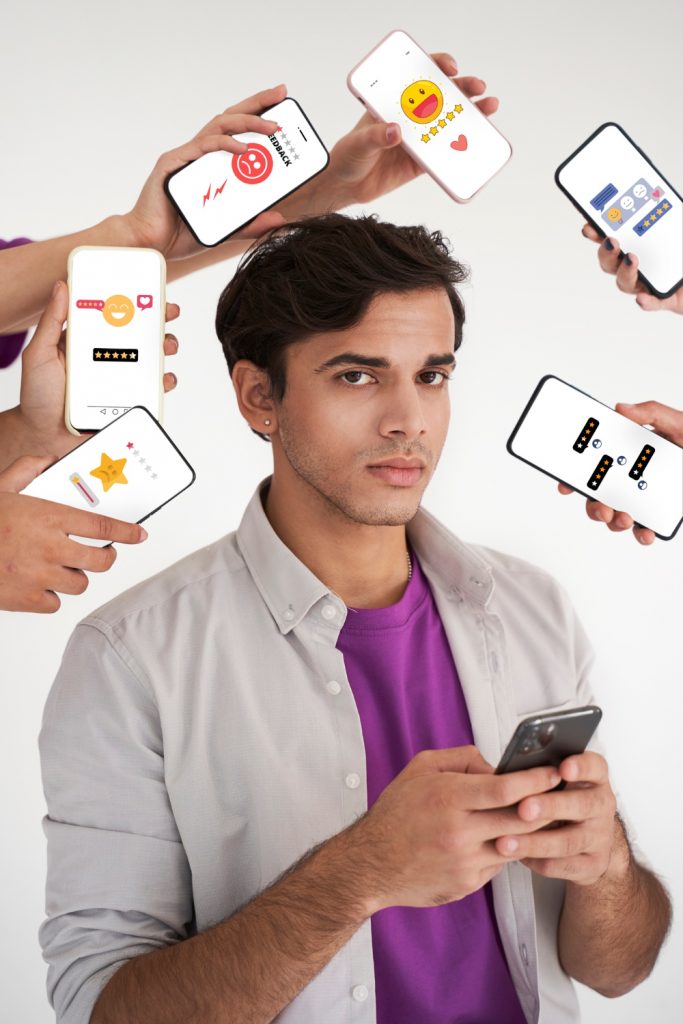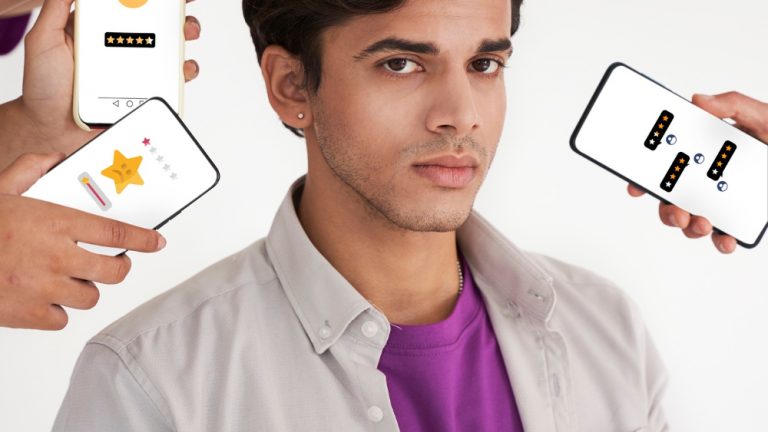Online dating has been a part of our lives since Match.com launched in 1995. Tinder, Bumble, and the like hadn’t even been conceived as thoughts. Now, look at us; nearly 30 years later, finding partners on the internet is as prominent as ever. Thousands of swipes, matches, heartbreaks, and full relationships down the line, and people are still searching for love on the internet. If it works, why break it?

The exciting thing about online dating is the convenience it affords us. No more letting your shyness or social awkwardness stop you from saying hi, akin to how you can interact with live dealers and players online on bruce bet casino. Let’s break down the experience. What’s the psychology behind dating online?
The Trifecta
Have you ever wondered what happens in your head or that of the person on the other end of your chats during your seasons of rendezvous? Why did they swipe right on your profile? Was it your quirky bio or the cheesy smile in your second photo? There’s got to be a million other people who got rejected, so why you? We’ve already established the existence of psychology in this game, so let’s delve deeper into the popular theories that can better put this into perspective.
Social Exchange Theory
This theory focuses on our subconscious decisions, or lack thereof, as the case may be. Social exchange circles around getting the most rewards, which could be affection, support, companionship, or love, in this case, for the least cost: effort, time, and emotional investment. You want the best things from the supposed relationship without having to put in too much. You’re more likely to consider somewhat superficial things like physical attraction, social status, and sense of humor.
Self-Disclosure Theory
Now that the ball is rolling, it’s time to share the little details about yourself. But people are more inclined to disclose such information if they are fairly sure there’ll be a positive outcome in the long run. So, if you feel like there’s trust or intimacy building, you’re sure to reveal more about yourself. It’s almost as though overcompensating for the distance and lack of touch by overindulging to build a romantic connection.
Social Identity Theory
Opposites don’t necessarily attract, and that’s not just in reality; it’s also in the internet courtship world. People almost always define themselves based on social groups while trying to maintain a distinctive persona, like a status that still differentiates them. That’s their identity, and you’ll see this play out in dating profiles where users share information about their hobbies, beliefs, and other social identities to attract similar or, at least, like-minded people.
How These Apps Affect Behavior
Now that you’ve downloaded the most reviewed dating app from the App Store, maybe your friend has found love there, and it could be your turn. You’d like to know how using these apps could affect your behavior. Wouldn’t we all?
The first takeaway is that online dating relies primarily on verbal communication by texting or calling. The algorithm is hardwired to act a certain way, and like all trained artificial intelligence tools, it’ll record your preferences and send similar profiles your way.
- Your options become tailored to help you find a potential partner.
- There’s a greater emphasis on superficial things, especially physical appearance.
Unfortunately, some of these features turn out bad for others. Here are some negatives to get you prepared.
- If you insist on being private, you’ll likely get “ghosted” often. People may cancel plans or kill the chat because they aren’t disconnected.
- Stalking is much easier because neglecting cybersecurity in situations like this is easy. Your potential match can use the little information they’ve gathered to research and gain more insights into who you are.
- You’ll find deceitful people who upload incorrect information about themselves to get more matches. It’s called “catfishing” and can be a misrepresentation of photos or simply a blatant lie.
The Flaws of Online Dating
Before you start blaming yourself for not making any significant or long-term connections on these apps, it’s important to know that the entire model is flawed somehow. There are three flaws recognized from research.
- The flaw of anonymity;
- The flaw of conflict of interest;
- The flaw of choice overload.
You can do more research on them, but remember that you cannot build a relationship solely on attractiveness (which has these apps and their users in a chokehold).
What’s Your New Dating Tactic?
Okay, that’s online dating wrapped! Have you always known that psychology plays a major role in meeting people online? Maybe it’s why none of your swipes have panned out. Jokes aside, you could pick up a thing or two from this article and apply it to your dating life. And hey! Online dating is not for losers. Love is everywhere around us. Keep searching. We hope you find your forever!
